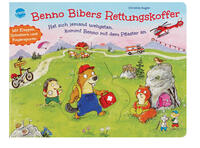Bernd Liske
Bernd Liske, born in 1956, studied mathematics in Chemnitz and is the owner of Liske information management systems. From its founding in 1998 until May 2015, Bernd Liske was a member of the main board of BITKOM, where he worked in the defense, education and knowledge management working groups. In the course of his efforts to deal with the revelations of Edward Snowden in the NSA affair, he was expelled from BITKOM in 2015. From 1998 to 2003 he was a member of the board of the Association of Organizations and Information Systems (VOI). Bernd Liske has been dealing with socio-political issues for many years. In his analyzes and concepts, he deals with social, political and economic problems in our society in order to make contributions to maintaining Germany as a business location. His book “PRISM A Lesson for our Democracy”, published in September, grew out of this. The diversity of the topics he deals with as well as the systemic principles used for their treatment can be followed on his homepage at and on his TWITTER channels @BerndLiske, @LiskeAphorismen and @LiskeZitate. He now regards his aphorisms as an open source operating system for the analysis and design of social processes and has been using them successfully for years.
View Rights Portal

























